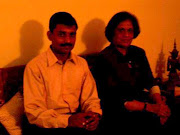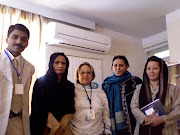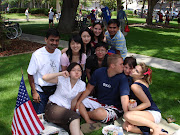In December 2004, the UN High-level Panel tendered its recommendations and suggested, amongst others, the reform of the United Nations Security Council (UNSC) and recommended two models for achieving this. The first model approve of ‘six new permanent members with no veto powers, and for 13 two-year non-renewable seats’. The second model provides for ‘no new permanent seats, but 80 four-year renewable seats, and 11 two-year non-renewable seats’. It takes three steps to enlarge the Security Council. The first is a vote in the General Assembly on a framework resolution, which the Group of Four (G-4) has proposed recently. A second vote would be to fill in the names of candidate countries. The third step is to amend the U.N. Charter, over which national legislatures of the existing five permanent council members have veto power. Among the P-5, Britain and France support the G-4 proposal while the United States, Russia and China have argued against a solution at this point of time.
As of July 2005, there are 191 member states of the United Nations. That means the resolution seeking to expand the membership of the UN Security Council must have at least 128 member states behind it to be adopted by the UN General Assembly. After a decade of debate in the 191-member U.N. General Assembly, the G-4 - Brazil, Japan, Germany and India, have circulated a resolution calling for ‘six additional permanent council seats, including two for Africa, and four more nonpermanent seats, of which Africa would get two’.
It is interesting to observe three processes that are simultaneously taking place in Africa, parallel to UNSC reform process. Firstly, the speedy transformation of the African Union (AU) from the Organization of African Unity (OAU); Secondly, inclusive governance, development and economic renewal through the New Partnership for Africa’s Development (NEPAD); and thirdly the assumption that two permanent UNSC seats will be available for the continent.
In the just concluded AU Summit in the Libyan coastal town of Sirte on the eve of the G8 summit in Gleneagles, AU heads of state and government unanimously adopted a common position on African representation on the UN Security Council, resolving to ask for ‘two permanent seats with all the privileges, including the right of veto, and five non-permanent seats’. However, AU is split on who should get new permanent seats - with South Africa, Nigeria, and Egypt the main contenders and Kenya, Senegal and Libya the aspiring contenders.
The G-4 have already delayed a vote on their resolution until after the African Union summit, an indication they do not have the two-thirds or 128 votes required among the 191 assembly members without most of the AU's 53 members. The Africa foreign ministers agreed on the two new permanent council seats but want three new nonpermanent members, one more than in the G-4 proposal. This would increase membership from 15 to 26, rather than 25 as Germany, Brazil, Japan and India have proposed. Should G-4 agree to AU standpoint, several of their benefactor, especially from Europe including France might pull out their support, for they had decided to put their names on the draft on the perceptive that its language would not be changed. And without their support, neither group can get two-thirds majority needed to get the resolution adopted. However, United Nations ambassadors of G-4 and African Union (AU) failed to find a common position on expansion of the Security Council and decided to return the issue to their foreign ministers who had charged them with drawing up a draft resolution acceptable to both.
In the mean time, the ‘Uniting for Consensus’ (UFC) group, led by Italy and Pakistan, including Argentina, Canada, Colombia, Costa Rica, Malta, Mexico, South Korea, San Marino, Spain and Turkey opposes creation of additional permanent seats in the UN Security Council has submitted a draft resolution, which seeks to create 10 additional non-permanent seats in the Council. It appears to be an attempt to sap support away from a G-4 draft, which is facing strong opposition led by the United States. Pakistan is adamantly opposed to India securing permanent membership of the council, Brazil’s bid is opposed by Argentina and several Latin American countries, Japan’s by China and South Korea while Italy leads opposition to Germany’s bid.
As far as India is concerned, the path to a permanent seat is not a easy climb, as not only will it have to get a nod from P-5 countries like US and China who have not endorsed its candidature, it will have to seek favorable allies in the 2/3rd of the 191 members of the UN General Assembly to get on board the UN Security Council if and when it is enlarged. While P-5 countries like Russia, France and UK have endorsed India's candidature, besides support from smaller countries, many countries have chosen to be careful in their support. Noting the current debate on UN Security Council reform, Indian Prime Minister Manmohan Singh said ‘…by any criteria, India has a strong case to become a permanent member of the Security Council. So, our strategy will be to overcome the hiccups, while negating the false propaganda by Pakistan, India also wants to be seen as a mature democracy’.
As of July 2005, there are 191 member states of the United Nations. That means the resolution seeking to expand the membership of the UN Security Council must have at least 128 member states behind it to be adopted by the UN General Assembly. After a decade of debate in the 191-member U.N. General Assembly, the G-4 - Brazil, Japan, Germany and India, have circulated a resolution calling for ‘six additional permanent council seats, including two for Africa, and four more nonpermanent seats, of which Africa would get two’.
It is interesting to observe three processes that are simultaneously taking place in Africa, parallel to UNSC reform process. Firstly, the speedy transformation of the African Union (AU) from the Organization of African Unity (OAU); Secondly, inclusive governance, development and economic renewal through the New Partnership for Africa’s Development (NEPAD); and thirdly the assumption that two permanent UNSC seats will be available for the continent.
In the just concluded AU Summit in the Libyan coastal town of Sirte on the eve of the G8 summit in Gleneagles, AU heads of state and government unanimously adopted a common position on African representation on the UN Security Council, resolving to ask for ‘two permanent seats with all the privileges, including the right of veto, and five non-permanent seats’. However, AU is split on who should get new permanent seats - with South Africa, Nigeria, and Egypt the main contenders and Kenya, Senegal and Libya the aspiring contenders.
The G-4 have already delayed a vote on their resolution until after the African Union summit, an indication they do not have the two-thirds or 128 votes required among the 191 assembly members without most of the AU's 53 members. The Africa foreign ministers agreed on the two new permanent council seats but want three new nonpermanent members, one more than in the G-4 proposal. This would increase membership from 15 to 26, rather than 25 as Germany, Brazil, Japan and India have proposed. Should G-4 agree to AU standpoint, several of their benefactor, especially from Europe including France might pull out their support, for they had decided to put their names on the draft on the perceptive that its language would not be changed. And without their support, neither group can get two-thirds majority needed to get the resolution adopted. However, United Nations ambassadors of G-4 and African Union (AU) failed to find a common position on expansion of the Security Council and decided to return the issue to their foreign ministers who had charged them with drawing up a draft resolution acceptable to both.
In the mean time, the ‘Uniting for Consensus’ (UFC) group, led by Italy and Pakistan, including Argentina, Canada, Colombia, Costa Rica, Malta, Mexico, South Korea, San Marino, Spain and Turkey opposes creation of additional permanent seats in the UN Security Council has submitted a draft resolution, which seeks to create 10 additional non-permanent seats in the Council. It appears to be an attempt to sap support away from a G-4 draft, which is facing strong opposition led by the United States. Pakistan is adamantly opposed to India securing permanent membership of the council, Brazil’s bid is opposed by Argentina and several Latin American countries, Japan’s by China and South Korea while Italy leads opposition to Germany’s bid.
As far as India is concerned, the path to a permanent seat is not a easy climb, as not only will it have to get a nod from P-5 countries like US and China who have not endorsed its candidature, it will have to seek favorable allies in the 2/3rd of the 191 members of the UN General Assembly to get on board the UN Security Council if and when it is enlarged. While P-5 countries like Russia, France and UK have endorsed India's candidature, besides support from smaller countries, many countries have chosen to be careful in their support. Noting the current debate on UN Security Council reform, Indian Prime Minister Manmohan Singh said ‘…by any criteria, India has a strong case to become a permanent member of the Security Council. So, our strategy will be to overcome the hiccups, while negating the false propaganda by Pakistan, India also wants to be seen as a mature democracy’.












No comments:
Post a Comment